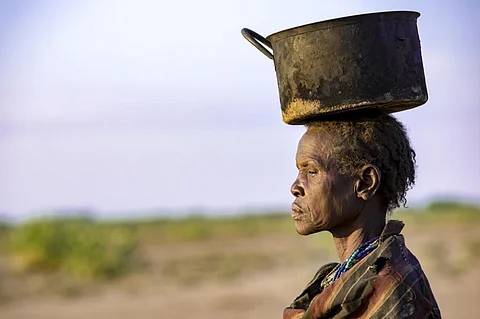

The global demand for fresh water will exceed supply by 40 per cent by 2030, said Csaba Kőrösi, president of the 77th session of the United Nations General Assembly (UNGA). He was speaking at a press conference in Geneva on the UN Water Conference to be held March 22-24, 2023 in New York City.
For the first time in history, human civilisation has breached the planetary boundary for water, Korosi said. “It means that we are in the red zone.”
In many parts of the world, 80 per cent of the impacts of climate change is felt through water, according to him. Many countries are simultaneously grappling with three major kinds of water crises, he added. “It’s too much, it’s too little or it’s too dirty to use or drink.”
He called for transformative water management policies and practices to circumvent these conditions, while talking about the upcoming UN Water Conference — the first full-fledged one since 1977.
Around 97 per cent of the usable freshwater comes from groundwater and the reliance on groundwater is immense: Nearly half the global urban population today uses groundwater sources to meet their daily needs, according to the UN World Water Development Report 2022.
Water is also essential for food security, the UNGA president noted. “Around 40 per cent of the grain that we produce by 2030 will have to come from the lands that suffer droughts, more serious than what we are experiencing today.”
The Horn of Africa, for instance, is experiencing its sixth consecutive failed rainy season, deepening the drought crisis for millions of people living in the region, a UN News correspondent pointed out to Kőrösi, asking what the upcoming summit has in store for the poor of the world affected by water crises.
“By March 24, I hope that there will be a strong political commitment by 193 member countries,” the president responded. He also hoped for strong cooperation from the corporate world, scientific community and social sector.
The major task of the conference next month will be to identify game changers in the efforts to manage the water crises, he added. “We need to shift from a water crisis to a water secure world. From water conflicts to water cooperation. From a lack of information to an evidence-based data-supported decision making.”